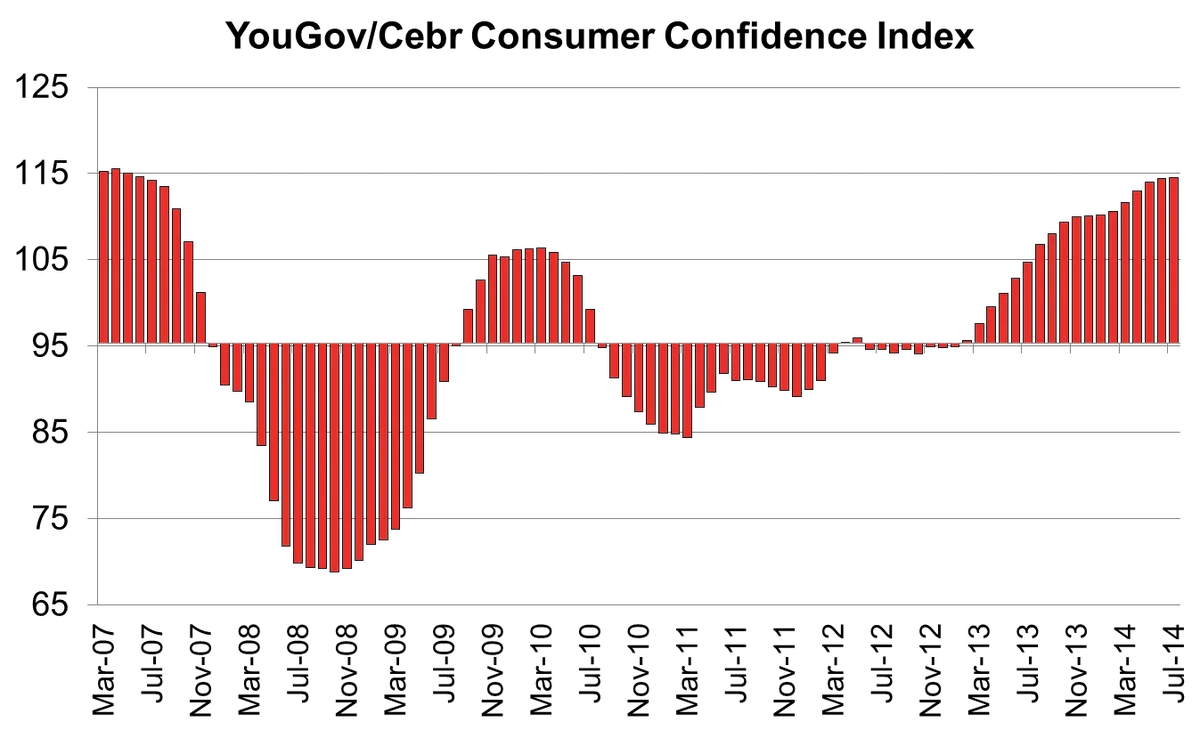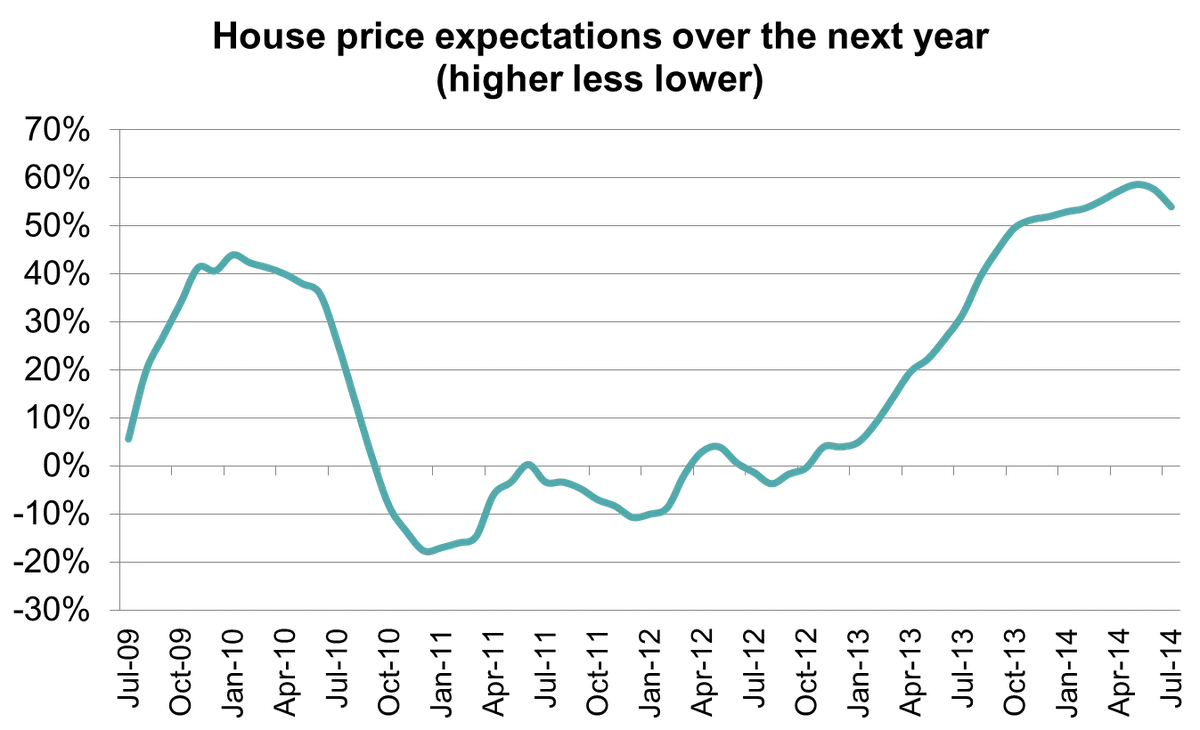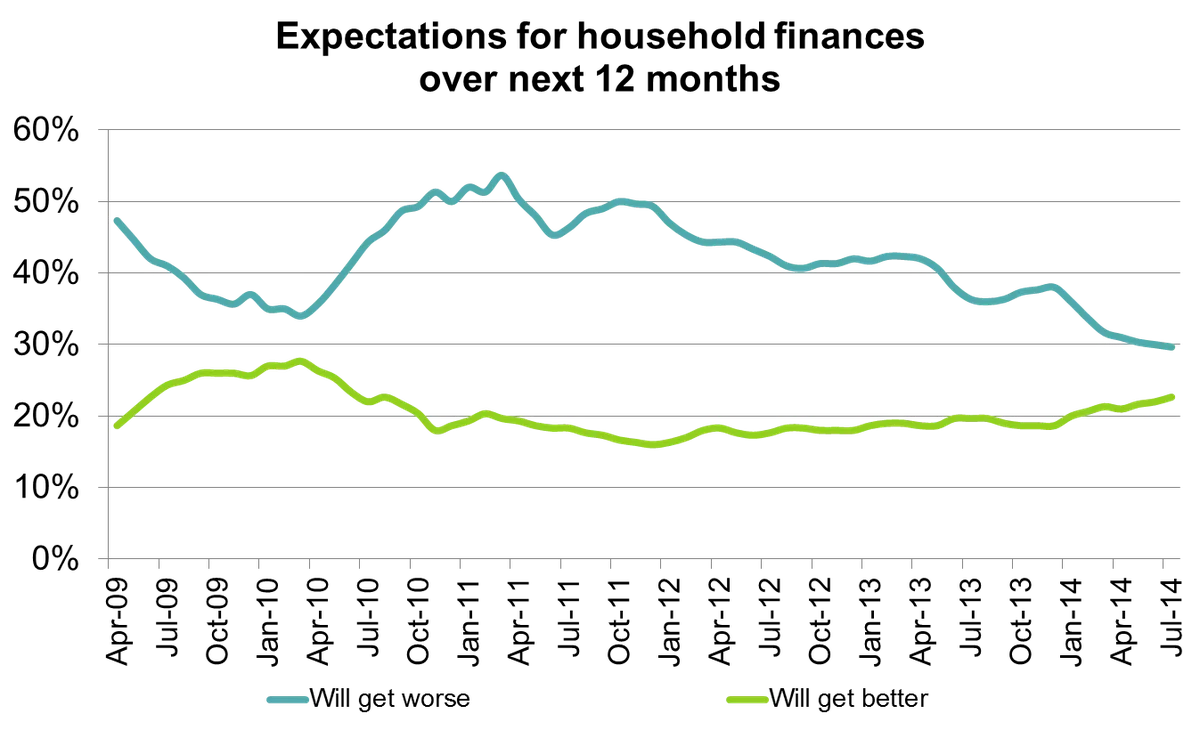This month’s YouGov/Cebr Consumer Confidence Index is flat - indicating this phase of the economic recovery may be reaching its peak.
The levelling off comes as the Q2 GDP figures are released, with Cebr projecting quarterly growth of 0.8% – unchanged from Q1. YouGov and Cebr’s analyses of the data suggest that stalling economic optimism is caused by a softening in expectations for the property market.
The figures show that for the second month in a row there has been a decline in the number of people who expect their houses to increase in value over the next 12 months. This indicates that increasing numbers feel that the price inflation seen over the last year is unsustainable.
However, despite this cooling, YouGov and Cebr’s figures show a continuation of the steady increase seen recently in people’s optimism about their household finances over the next 12 months. Although more households still think their situation will get worse rather than get better over the coming year, the gap is steadily closing.
Stephen Harmston, Head of Syndicated Research at YouGov: “The surge in consumer confidence over the past 18 months has largely been built on homeowners’ faith in property prices increasing. Now we are seeing a distinct cooling off in these expectations and, as a result, overall consumer confidence has stalled.
“Since the start of this year we have recorded the seven highest scores ever for people’s expectations for the housing market. The steady improvement in how people see their household finances playing out over the next year continues unabated. Although more people are still worried about their finances than are optimistic, the gap is closing and this is an indication that the recovery is slowly but surely reaching people’s wallets.”
Scott Corfe, Managing Economist at the Centre for Economics and Business Research: “We expect this week’s GDP figures to show growth about the same as last quarter. However these latest consumer confidence data suggest we may be at a turning point, with underlying growth starting to cool in the second half of 2014. While this does not mean that the economy will fall through the floor any time soon, it may be that we are nearing the peak of the cycle.
“The good news is that growth seems to be becoming more balanced. With some heat coming out of the housing market, business investment picking up and household finances slowly improving, the economy could be readying itself for slower, but more sustainable, growth.”
YouGov/Cebr Consumer Confidence Index
After 18 months of continued improvement, the YouGov/Cebr Connsumer Confidence Index stands at 114.5, the same as last month. This is the first month without growth in economic expectation since December 2012 when it fell slighly.Although it is +9.7 points higher than at the same point last year and +19.9 points higher than July 2012, it is still below it’s 2007 peak.

Source: YouGov/Cebr HEAT data, July 2014, using a three-month rolling average.
Notes: Axis value of 95.3 represents the average HEAT Consumer Confidence measure since the data set began in 2007.
Continued fall in expectations for their property’s value
For the second month in a row the number of home owners that expect the value of their houses to increase over the next year has fallen. It is the first time since the summer of 2012 that the measure has declined for two successive months. While house prices expectations are cooling, it should be noted that the net balance is still the fifth highest since YouGov started gathering data in the spring of 2009.

Source: YouGov/Cebr HEAT data, July 2014, using a three-month rolling average
Expectations for household finances continue to increase steadily
However, despite the fall in overall consumer confidence and a cooling of property price expectations, the proportion of those who think that their household finances will improve over the next year continues to increase at a steady rate. The measure is +9.6 points up on July 2013 and +16.9 points ahead of where it was two years ago. But despite these improvements, more people still believe their household finances will get worse over the next year than will get better.

Source: YouGov/Cebr HEAT data, July 2014, using a three-month rolling average
Look here for more information about the Household Economic Activity Tracker
Image from iStock






